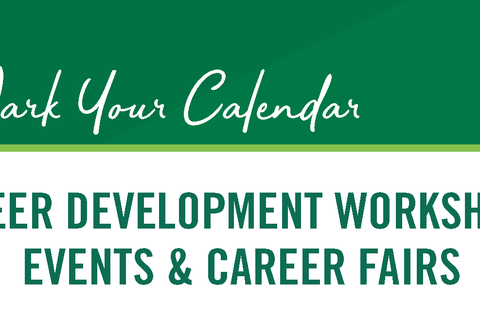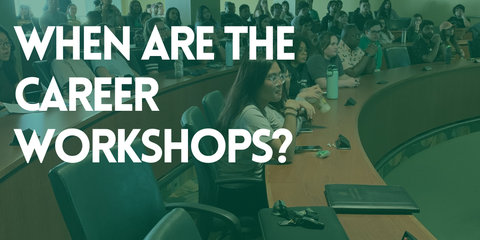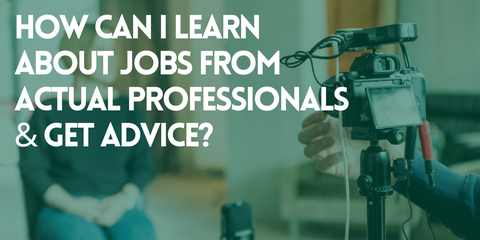When You Receive an Offer
After receiving an offer, you must start to assess the offer. You may ask yourself: Should I take it? How do I decide between multiple offers? How do I accept or decline the offer? When you receive an offer, you are not required to accept the first offer received or every offer you receive. Before accepting a position, carefully evaluate if the position is the right fit for you at this time.
Follow the steps below for how to respond to an offer at the moment:
- Thank the employer and express your excitement.
- Ask for the details of the offer (salary and benefits package)and if they can send it to you in writing.
- Request some time to review the offer and think things over. Find out when they would like your decision.
- Thank them again and let them know when you will get back to them.
After that conversation, you now have time to consider if you want the position and take a look at the details to ensure you are making the right decision. Use the questions in the adjacent box to consider if the position and the offer are the best fit for you.
The time between receiving and accepting an offer is the time to negotiate. Not all positions are negotiable, however, you should look at the offer to determine if it is reasonable. Negotiation is a conversation. You should bring research and reasons that explain why you are worth more than they are offering. It is recommended that you discuss this with a career coach or trusted mentor with experience in this area before negotiating.
Consider the following:
The time between receiving and accepting an offer is the time to negotiate. Not all positions are negotiable, however, you should look at the offer to determine if it is reasonable. Negotiation is a conversation. You should bring research and reasons that explain why you are worth more than they are offering. It is recommended that you discuss this with a career coach or trusted mentor with experience in this area before negotiating.
Consider the following:
- Focus on the value you bring to the organization (special skills, knowledge, training, education, or experience).
- How does the offer compare to other offers you’ve received for similar positions?
- How does the offer compare to industry standards?
A value statement is your way of expressing an evidence-based statement to support your target salary. This might be used when asked about your desired salary, when counter-offering a salary offer, or when requesting a promotion or raise. A value statement will be particularly important because you want the employer to see the contributions you will make to the organization. You will always begin by expressing a value you give to an organization or evidence of your worth prior to mentioning any numbers.
Salary discussions initiated by the employer can take place at any time during the interview process. So be prepared and ready to discuss your salary expectations:
- During the application submission process, some organizations can ask for your salary preferences.
- During the interview process, some organizations may ask for your desired salary.
- Once an offer is made, some organizations will let you know the salary at that time.
Before applying, start researching salaries for similar positions in your area using tools such as salary.com, glassdoor.com, or jobsearchintelligence.com. It is in your best interest to let the employer share their salary expectations with you before you offer a number you have in mind. You don’t want to accidentally offer a number that is lower than what they would have offered you. When you respond, give a range with the base being the lowest salary you would be comfortable accepting and go up 20%. For example, if $50,000 is a realistic starting salary for this type of position with your qualifications, you may ask for $50,000-$60,000.
“I want to thank you for this opportunity to work for XYZ company. You are my first choice and I would love to work for your team. Based on my degree and experience increasing XY for company Z during my internship, and my research for current salary trends in our area, I would be expecting a salary closer to $50,000-$60,000. Is there room for negotiation on this number?”
Other Benefits
There are other benefits that should be taken into consideration such as salary is non-negotiable. Please note that not all industries offer these benefits.
- Relocation
- Flex time/Hybrid work
- Insurance coverage
- Retirement Plan
- Sign-on bonus
- Stock options
- Merit increases/Performance reviews
- Parking
- Transportation costs
- Tuition reimbursement
- Professional development and certifications
- Gym memberships
- Daycare availability
- Paid holidays
- Sick leave and personal holidays
- Vacation time
If the salary offered is less than you expected, you can consider negotiating one or two other benefits. Do not select all to negotiate, as this is a time to be strategic to ensure you are able to get the position you most desire.
“If the salary cannot be adjusted, can we discuss professional development opportunities? Having a project management certification would be beneficial to this role and my own development. Would you be willing to sponsor this within the first 3 months in lieu of a salary increase?”
After the salary has been finalized, consider the following:
- Ask for the revised offer in writing.
- After you verbally accept, write an acceptance letter.
- Once you accept a job offer, do not back out. Stop looking for jobs. Inform other companies that they should no longer be considering your application.
- Thank and update those who helped you during the search.













